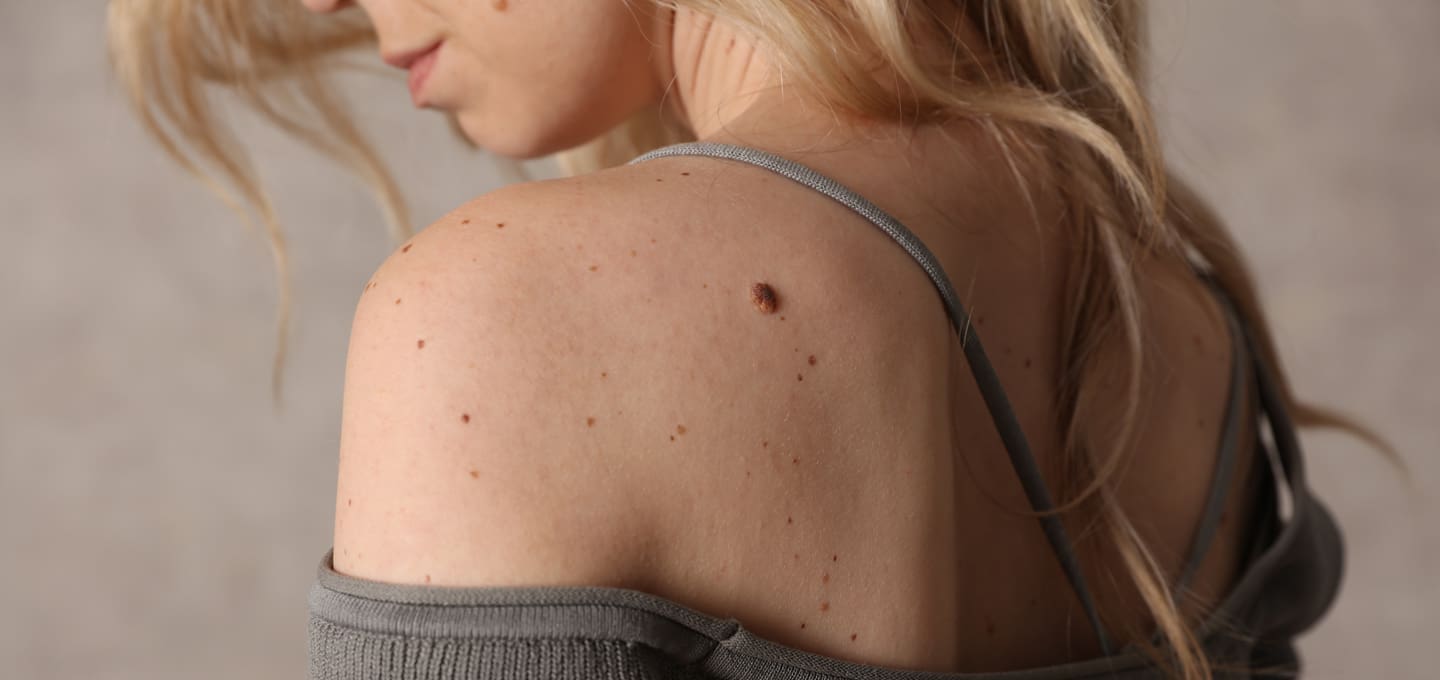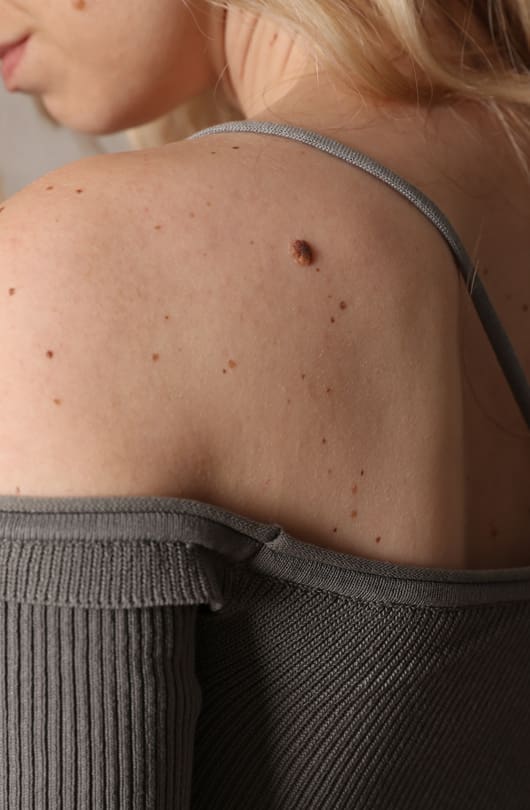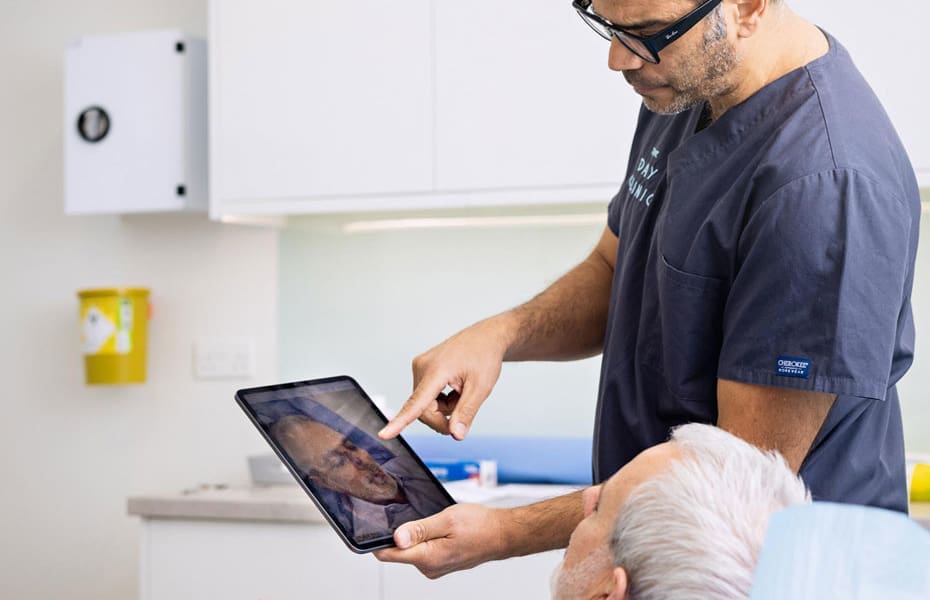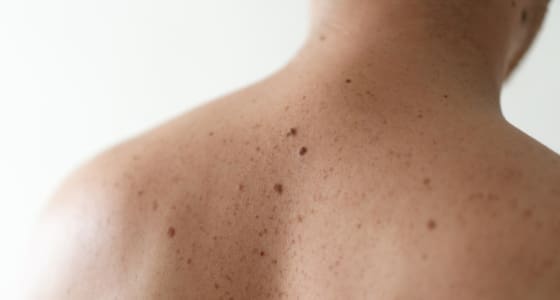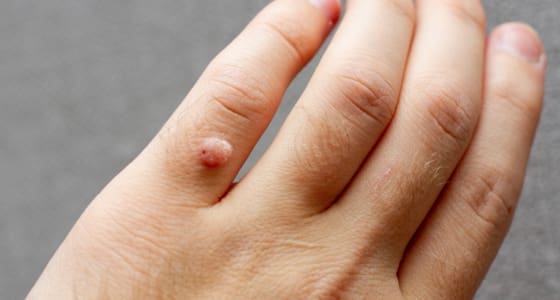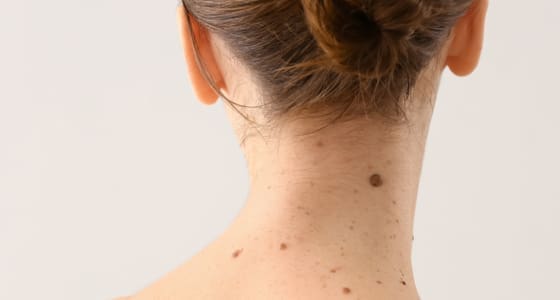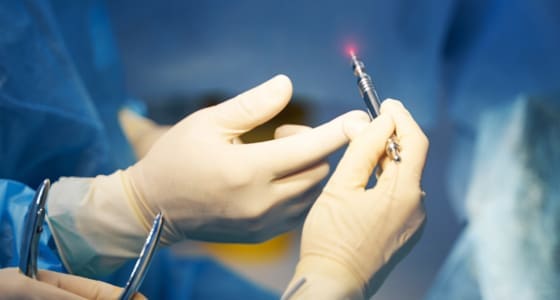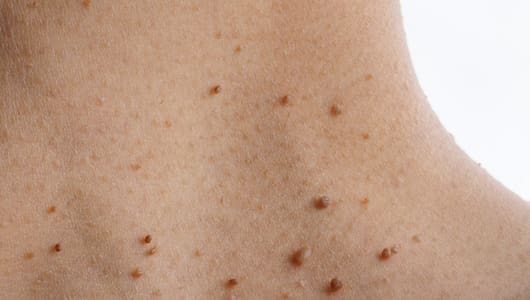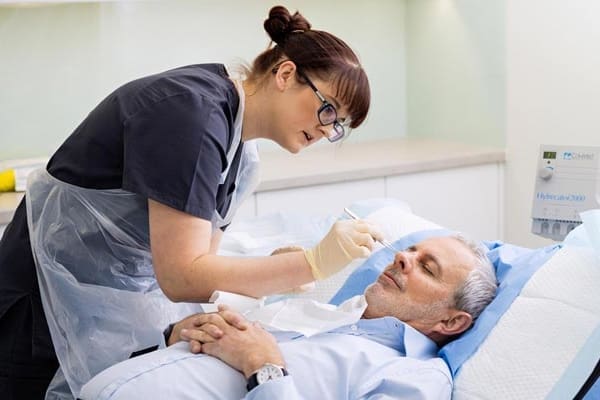They are very common and often found in areas where skin rubs against skin, such as the neck, armpit, groin, eyelids and under the breasts. It’s estimated that half the UK population will get a skin tag at some point in their lives.
While skin tags present no medical threat, many people choose to remove them because they cause discomfort, become irritated, or snag on clothing or jewellery. There is also the risk of accidentally shaving skin tags, which will result in bleeding and potential scarring. Many people opt to remove them purely for cosmetic reasons.
The cause of skin tags isn’t fully understood but the human papillomavirus (HPV), metabolic syndrome and insulin resistance are thought to be factors in their development. They can also appear when the skin is frequently rubbed, or due to hormonal changes during pregnancy.
While it can be tempting to try to remove a skin tag yourself, we strongly advise against it as this can lead to infection, bleeding and scarring. Attempting to remove skin tags at home is particularly unadvisable when they are in sensitive and/or visible areas such as the eyelids and face. We highly recommend seeking advice from one of our skin specialists if your wish to have a skin tag removed and they can guide you on the safest and most effective procedure.
During the consultation your lesion will be examined by one of our consultant dermatologists or plastic surgeons to confirm the lesion it is a skin tag and nothing more serious. Your consultant will guide you through the options for removal. Most skin tags are removed by surgical excision, but we may alternatively recommend cryotherapy or electrosurgery, depending on your particular case.
Skin tags are frequently removed as a ‘see and treat’ appointment which means the procedure will happen straight after the consultation. This can be more convenient and cost effective for patients. You can discuss this option at the time of booking.
